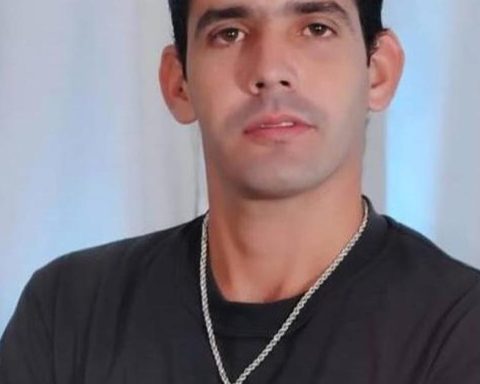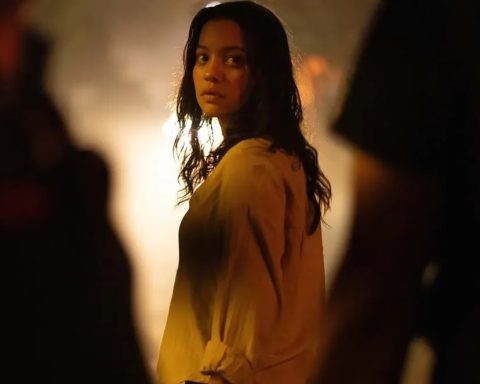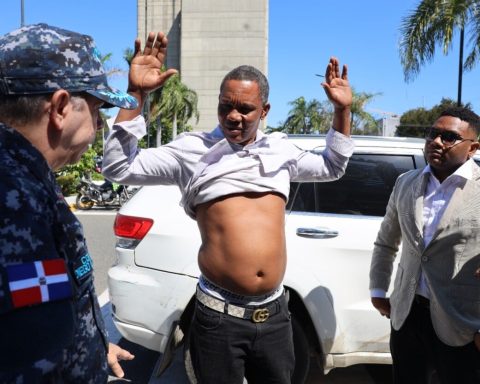It is always advisable not to give double readings when something happens in politics. In general, the gestures, the arrangements of things and the words that are chosen in a speech —or at least in a staged instance like a cabinet change– they are intentional.
During the morning of Friday, March 10, the historic Montt Varas Room had seven chairs for people who would come to occupy new portfolios. Then there were six and then five. That, accompanied by names that came and went within the possible payrolls of the Government. A member of the Political Committee explains it by saying that “we worked all day, it was very intense, nobody moved much because La Moneda was full of press and it was disturbing to know that they were taking out and putting chairs.”
Minister Vallejo said it was a production problem and this was confirmed by other sources. But, since we are in politics and on the day she offered names that were downloaded before taking office, it is unavoidable to give it a second reading. Especially since one of the questioned ministers, Marco Antonio Ávila, seemed to be saved from Russian roulette in this round.
The signal that the cabinet change was coming was given by the President when he returned from the north, without visiting Colchane, a town that is a symbol of immigration, to return on Wednesday of next week. Illogical, apparently, because the cabinet meeting scheduled for Saturday, on the anniversary of the government’s first year, had to be with the new team.
Thursday night was long. The teams stayed reviewing the proposed names, checking their social networks and past statements so that no impasse dirty the change. Those checks were given up to the last minute. The only thing that was known during the morning was that there were seven chairs installed in the Montt Varas Room, the place where the change would take place.
The event was scheduled for 1:00 p.m. However, from the Patio de los Naranjos it was possible to see the different ministers leave through the door of the Palace that overlooks the Plaza de la Constitución. They were going to their ministries, since the time of the event had been postponed. “Between two and three thirty,” was heard in the patios of La Moneda. The climate began to fill with uncertainty, rumors escalated and filled the atmosphere until the last minute.
Rumors kept coming out in the morning that promised unpublished faces that had not been discussed in the previous days: “Ripamonti said no to President Boric”, appeared in the GC of ‘Tu Día’, from Channel 13. A tweet from the mayor of Viña del Mar, in response to these rumors, ended up fueling the issue even more: “My role in the institutional framework was a very exceptional decision, motivated exclusively by the love I have for the city of Viña del Mar , the one that saw me grow and develop. Getting it out of corruption and promoting its development is the only public duty that I intend to have” and the morning had material to talk extensively about it.
Other media had had the exclusive that Marta Maurás was confirmed to reach the Foreign Ministry. However, since her appointment was already known, the disagreement of the diplomatic environment was not long in coming and she reacted before her official appointment. In parallel, on the morning of Mega They reviewed some of Maurás’ old and controversial tweets on immigration and speculation began about his departure. He hadn’t arrived and he was already out.
The seven chairs turned out to be a forced foot to think about the changes. The most possible portfolios for the change were Mining, Culture, Sport, Education and Chancellery. The others were more distant possibilities, speculation? Giorgio Jackson? Someone from the Political Committee? Economy Minister Nicolás Grau?
The wait in the Patio de los Naranjos gave rise to conjectures, to confirm the certainties and fuel more doubts. On the departure of Minister Urrejola there were not two opinions. The real question was who was going to replace her now and what was the government going to do to put this puzzle together quickly and efficiently. The only thing that was known was that a man linked to the PPD was arriving. Later, the information was confirmed in the Montt Varas Hall.
The majority of the Political Committee was inside the Palace, since its ministries are in the Government House. At about 1:30 p.m. Minister Tohá entered. From that moment on, all the ministers began to arrive with an interval of no more than five minutes. The wait was eternal. Even because there was no clear certainty of who had arrived. The Minister of Health, Ximena Aguilera, and Minister Grau, had taken advantage of entering for another place. The last to arrive was the Minister of Mining, Marcela Hernando.
At 3:00 p.m. the press was waiting outside the room. Time had passed slowly because the promised deadlines had not been met. It was known that they did not want to extend the ceremony, that it would only be a ceremony for the change of ministers and that the undersecretaries would be known through a press release.
In the morning there were seven chairs and now, before entering the room, there were only six left. All ready and willing to carry out the ceremony. The cameras and the press were installed. But suddenly, a person from the government team appeared and took a chair. Now there would not be six portfolios that would change, nor seven, but five. The gesture of removing a seat at the last minute, at least, suggested that a decision was made at the last second: a minister had been saved.
Suddenly the south door of the room opened and the painting by Manuel Montt was revealed. The first in the line of ministers was that of Education, Marco Antonio Ávila. As they settle into their posts, they talk and whisper to each other. They murmur. Minister Tohá talks with a journalist, then with Minister Vallejo. The government spokeswoman leaves the room, enters, returns and talks with the Minister of the Interior. They seem to want to forget something, like “that’s it”, that there is no time for that. As the President enters, Tohá approaches –as indicated by the protocol of the ceremony– and whispers something in her ear. Nothing else can happen because the master of ceremonies, the undersecretary Manuel Monsalve, begins to speak and name those who will leave their posts: Antonia Urrejola, Juan Carlos García, Julieta Brodsky, Alexandra Benado and Silvia Díaz. The latter were together on the stage.
In that same order they called the incoming ministers and the new chancellor, Alberto van Klaveren begins to walk towards the table where the President is. Van Klaveren signs the decree appointing her and the ministers Ana Lya Uriarte and Maya Fernández approach Urrejola to hug her.
The Public Works portfolio was one of those that surprised with the change. Juan Carlos García said goodbye to his position hugging his successor Jessica López, who was accompanied by several relatives who toured La Moneda. García gave the President a hug and sat in one of the five chairs that were waiting for those who were leaving, the former ministers.
Julieta Brodsky’s change was perhaps the least surprising. However, her replacement, Jaime de Aguirre, was the big news of the day. During the President’s speech, De Aguirre seemed a bit uncomfortable, since he came directly from the hospital where he had undergone surgery. This explained that during the press point, given by the new ministers and Minister Vallejo, the now head of Cultures did not participate.
“Don Jaime ‘Kayser’ Pizarro, do you swear or do you promise to faithfully carry out the position of Minister of State that has been conferred on you in accordance with the Constitution and the laws?” asked President Boric with a smiling gesture as he twisted the protocol hyperformalism when calling him for his football nickname. The champion of the only Libertadores of Chile entered the Sports portfolio after a questioned management by former minister Alexandra Benado.
While Minister Pizarro was signing, Aisén Etcheverry, who was seconds away from being the third Minister of Science, Technology, Knowledge and Innovationhe sighed deeply, as if starting a race.
The President installed himself in front of his new ministers and began to scratch the field for them. He told them what he expects from each of them, his main task. He also took advantage of warning them that the problems that occurred with the tax reform would only be resolved through dialogue. “Dialogue until it hurts,” he said, and ended with: “Get to work, thanks.”
The last minister to cross the door of the room was Ávila, who left relieved that he did not have a chair to sit on. Minister Vallejo insisted that it was “a production error.” The president of the PS, Paulina Vodanovic, told as an anecdote that the chair was left there to “distract” and that later they forgot to remove it.


















